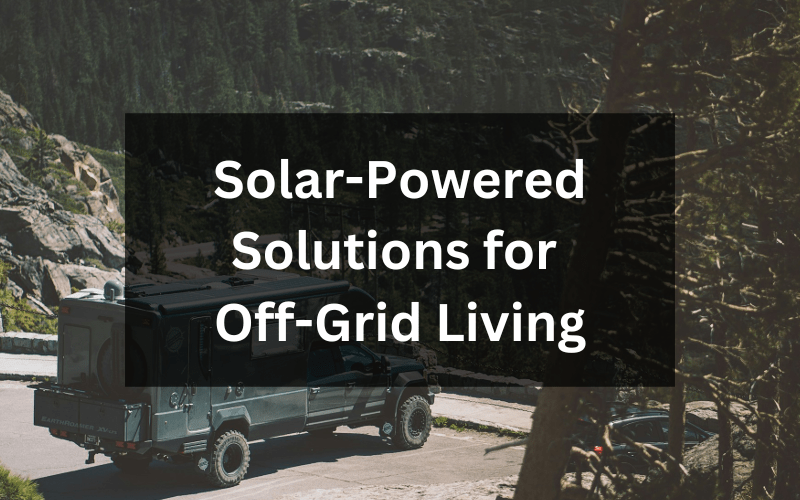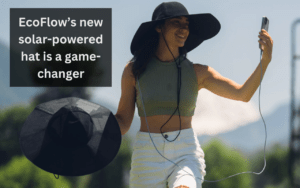Off-grid living – the term for becoming self-sufficient and relying on renewable energy sources that are not connected to the traditional power grid – is becoming an increasingly popular lifestyle choice for those wanting to reduce their carbon footprint and live more sustainably. Solar power is a perfect choice for this lifestyle, offering a way to generate clean and sustainable energy for homes and appliances without needing traditional power sources.
When people think of solar power, often the first thing that springs to mind is solar panels – but there’s so much more than just solar panels when it comes to off-grid living. In this article, we will take you through some of the best ways of integrating solar power into your off-grid setup.
- Roof-Mounted Solar Panels
- Portable Solar Panels
- Solar Portable Power Stations
- Solar Power Banks
- Solar Water Heaters
- Solar-Powered Fans
- Solar Ovens
- Solar-Powered Lights
- Solar-Powered Security Cameras
- Solar-Powered Fountain Pumps
- Solar-Powered Gate Openers
- Solar-Powered Watches
- Solar-Powered Refrigerators
Off-grid living refers to homes operating without reliance on the public utility grid, embracing self-sufficiency. This approach is ideal for remote areas beyond the reach of standard utilities, and also attracts those seeking to reduce their environmental impact and living costs.
Off-grid homes often use renewable energy sources like solar panels, wind turbines, and micro-hydro (small-scale hydropower) systems for power, supplemented by batteries for storage. These energy solutions enable residents to maintain their households independently, offering a sustainable and cost-effective alternative to conventional energy sources.
Table of Contents
Solar Panels
Using solar panels for off-grid living allows homes to operate independently from the main power grid, using solar energy to meet all electricity needs. This setup is crucial for remote locations where grid access is limited or for those aiming to live sustainably. Solar panels can be purchased as the typical roof-mounted variety, as well as as portable units which can be used for powering solar portable power stations, and are perfect for on-the-road use.
On-Grid vs Off-Grid
On-grid solar systems connect to the public utility grid, offering a backup and the potential to sell excess power back. Off-grid systems, in contrast, rely on batteries for storage, providing power without any connection to the utility grid. The choice between on-grid and off-grid depends on your location, energy needs, and goals for energy independence and sustainability.
Roof-Mounted vs Portable
Solar panels come in two main types: roof-mounted and portable.
Roof-Mounted Solar Panels are fixed installations on buildings or RVs, offering a permanent solution for energy generation. They’re ideal for consistent, large-scale power needs and can be tailored to the energy requirements of a home or vehicle.
Portable Solar Panels provide flexibility for those on the move, such as campers or anyone needing temporary or versatile power solutions. These can be easily set up wherever sunlight is available and are perfect for smaller energy needs or as a backup power source.
Both types convert sunlight into electrical energy, but their applications vary greatly. Roof-mounted panels are best for steady, high-volume power needs, while portable panels offer versatility and ease of use for on-the-go energy requirements.
Integrating Solar Panels into Off-Grid Setups
Integrating solar panels into off-grid setups involves choosing between roof-mounted and portable options based on your specific energy needs, lifestyle, and mobility. For permanent residences or long-term setups, roof-mounted systems provide a reliable power source. For those who travel or require mobility, portable panels offer a convenient way to harness solar energy without the commitment of installation. Both options can significantly enhance off-grid living by providing sustainable and independent power solutions.
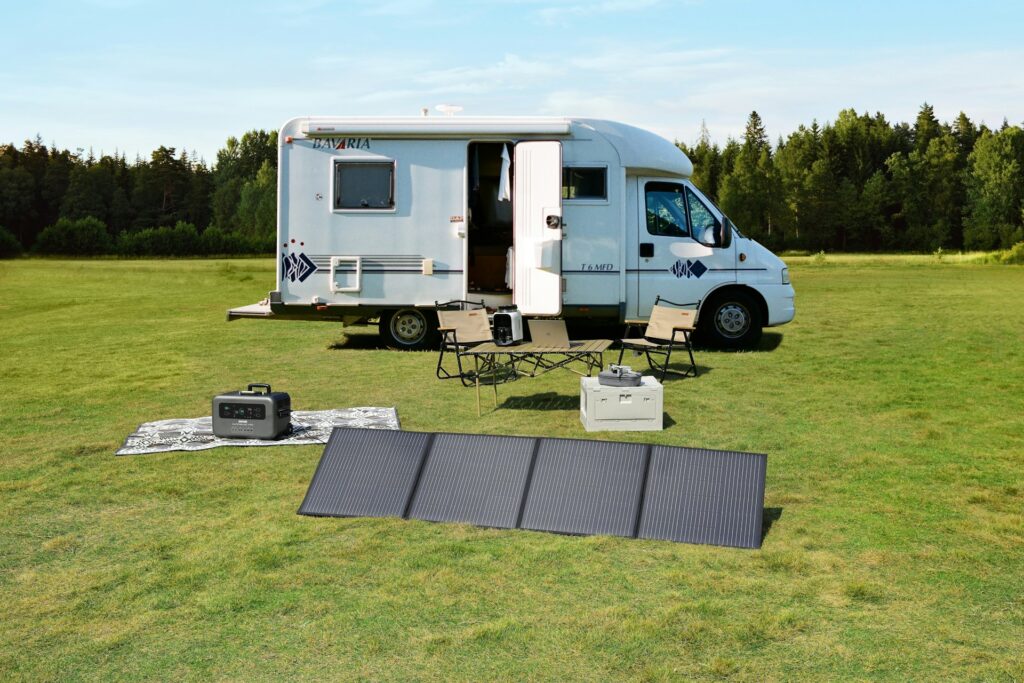
Solar Generators and Power Stations
Solar generators and power stations are essential for those embracing off-grid living, providing a reliable source of electricity powered by the sun. The difference between the two is mainly in their composition and purpose. A solar generator typically refers to a combination setup including solar panels, the portable power station with its rechargeable battery, and an inverter, designed to capture, store, and supply solar energy. Solar portable power stations, on the other hand, are standalone units that can typically be charged by AC and solar, which store electrical energy and make it available for use round the clock.
Sometimes the terms ‘solar generators’ and ‘solar portable power stations’ are used interchangeably, particularly by solar brands that offer both in their product range – so just keep in mind that most of the time, the ‘power station’ version of a model is simply the power station on its own, and the ‘solar generator’ version of a model consists of the power station along with compatible solar panels and connectors.
There are plenty of high-quality and reputable brands that deal almost exclusively in portable solar solutions, such as Bluetti, Jackery, Lion Energy, and EcoFlow.
Understanding Solar Generators and Power Stations
A solar generator is fundamentally a portable power station that uses solar panels (as well as AC and car, typically) to charge its battery. This stored electricity can then be used to power various devices. Solar generators are a sustainable alternative to traditional fuel-powered generators, as they generate clean electricity from the sun, significantly reducing greenhouse gas emissions.
Key Components and How They Work
- Portable Solar Panels: Capture solar energy.
- Rechargeable Battery: Stores the captured energy for later use.
- Solar Charge Controller: Manages the flow of energy to the battery, ensuring it’s charged correctly.
- Solar Inverter: Converts stored DC energy into AC electricity for everyday use.
Who Benefits from Solar Generators?
Beyond the standard off-grid setup, solar generators are ideal for a variety of users:
- Eco-Conscious Individuals: Those aiming to minimize their carbon footprint find solar generators a clean alternative, as they rely on renewable solar energy, reducing reliance on fossil fuels and lowering emissions.
- Outdoor Enthusiasts and Adventurers: Campers, hikers, RV owners, and boaters can all benefit from solar generators. These units provide a reliable power source in remote locations, allowing for the use of electronic devices, small appliances, and lighting without the need for conventional power sources.
- Homeowners Seeking Backup Power: In areas prone to power outages due to weather or unreliable grid infrastructure, solar generators offer peace of mind, keeping essential appliances running, such as refrigerators, lights, and medical equipment.
- Remote Workers and Digital Nomads: For those working remotely in locations without dependable power, solar generators ensure that laptops, smartphones, and other work essentials stay powered, enabling productivity anywhere.
- Event Organisers: Hosting events in off-grid locations or where additional power is needed, solar generators can power sound systems, lighting, and food preparation equipment without noise pollution or exhaust fumes.
- Farmers and Rural Dwellers: In agricultural settings or rural areas without grid access, solar generators can power tools, irrigation systems, and provide lighting for barns and outbuildings.
- Emergency Preparedness: For individuals and families looking to prepare for natural disasters, power outages, or other emergencies, solar generators are invaluable for maintaining power to critical devices and appliances during crises.
Choosing a Solar Generator
When selecting a solar generator, consider your energy requirements, the generator’s capacity, charge time, and the variety of available ports for charging devices. The type of solar panels you pair with your power station is also important for effective charging. There are several types, including portable slim-line panels for those on the move and more permanent options like flexible or folding panels for different setups. Brands like Jackery, Bluetti, and EcoFlow offer diverse models catering to different needs. Remember, a solar generator’s efficiency is also dependent on the solar panels used, so choosing a compatible panel is crucial for maximizing energy harvest.
Solar generators and power stations enable sustainable living off the grid, providing clean, renewable energy wherever and whenever needed. Whether for daily use or emergency backup, they are a critical component of modern off-grid setups.
For more information on choosing the best solar generator or portable power station for your needs, we wrote an article just for that: Solar Portable Power Stations: How To Choose The Best (2024).

Solar Power Banks
Solar power banks are effectively miniature, extra-portable versions of portable power stations, tailored for those needing to keep smaller devices like smartphones, tablets, and cameras charged while on the move. There are two main types of solar power banks: ones with integrated small solar panels, or ones that use separate, small portable panels to recharge. Their main allure lies in their ability to provide essential device charging capabilities virtually anywhere.
Despite their handy size, solar power banks typically have a much lower power output and capacity compared to standard portable power stations, making them ideal for charging smaller devices. They can typically be recharged via both AC and solar energy, although the charging time by solar is a lot slower than portable power stations – most solar power banks take days to fully charge using only solar. This makes them a supplemental charging option, particularly useful for extended outdoor activities where conventional power sources are unavailable. For quicker recharge times, they can also be powered up via an AC source, ensuring they’re ready for use when solar charging isn’t practical or when a quick turnaround is required.
As for solar generators, there are many big reputable brands providing options for on-the-go solar power banks, such as Lion Energy and Anker.
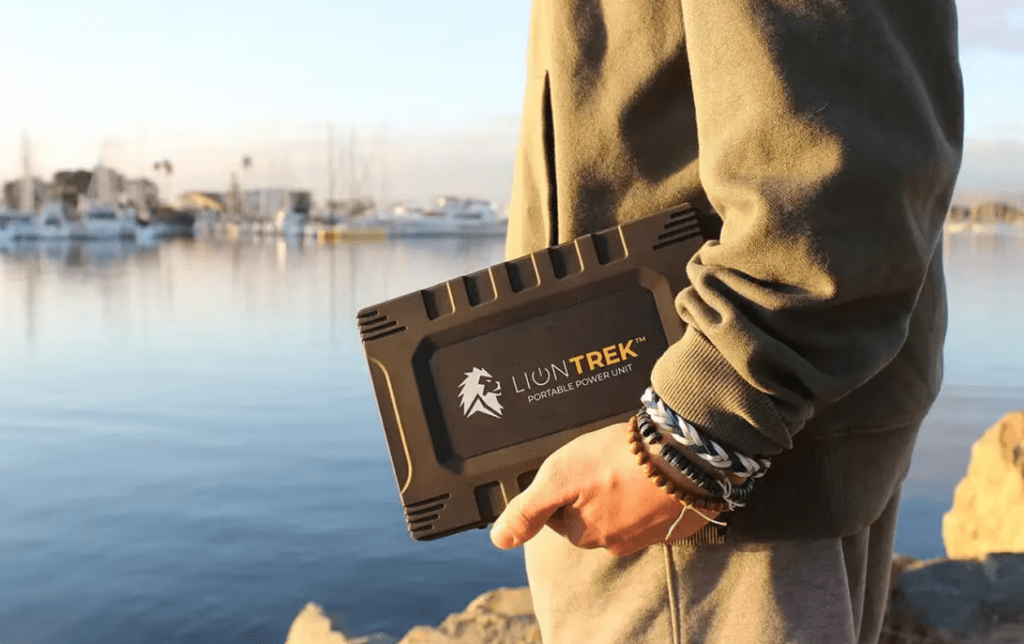
Solar Water Heaters
Solar water heaters, unlike traditional gas or electric heaters, utilise solar panels to collect sunlight and convert it into heat. This not only reduces reliance on fossil fuels but also cuts down on utility bills and carbon emissions, making it an eco-friendly choice for those aiming to live more sustainably.
There are two primary types of solar water heating systems: active and passive. Active systems use pumps to circulate water or a heat-transfer fluid through the system, making them suitable for a wide range of climates, including those prone to freezing. Passive systems, on the other hand, rely on natural circulation, with water heating and rising without the need for mechanical pumps. Though less efficient than active systems, they’re simpler and can be more reliable over time.
Incorporating a solar water heater into an off-grid setup can significantly improve energy self-sufficiency. These systems can provide a consistent supply of hot water with minimal environmental impact and operating costs. While the initial investment may be higher compared to conventional water heaters, the long-term savings on energy costs and the potential increase in property value make solar water heaters an appealing option for those committed to off-grid living.
For a full overview of solar water heaters, take a look at the guest article we wrote for our friends at HomeSage: Solar Water Heaters: Complete Overview (2024).

Solar-Powered Fans
Solar-powered fans operate by converting sunlight into electrical power, and offer attractive cooling solutions for homes and greenhouses. These devices are eco-friendly, reducing reliance on conventional power sources and offering an alternative for off-grid setups. Unfortunately, most solar-powered fans do not have integrated batteries, which means they can’t store energy for later use. This limitation restricts their operation to daylight hours when the sun is directly shining, impacting their speed, efficiency, and consistency.
Finding reliable solar-powered fans can be a challenge, as the market offers limited options and many products have inconsistent reviews. This situation makes sourcing from reputable brands difficult, deterring potential buyers concerned about product quality and performance.
A practical solution to these challenges is using a portable solar generator. Such generators can power any standard electric fan and are more readily available and reliable. They store energy, ensuring that fans can be used anytime, day or night, making them a superior option for maintaining comfort and air circulation in off-grid living situations.
For help on choosing the best solar generator for your cooling needs, check out the article we wrote specifically for that purpose: Solar Power Fans for Greenhouse: The Best Options (2024).

Solar Ovens
Solar ovens (also known as ‘solar cookers’) use the sun’s rays for cooking food. These devices focus sunlight into a cooking chamber, where the heat is trapped to cook the food contained inside. Highly reflective materials, such as mirrors or aluminium foil, are used to direct light into the oven. The design ensures heat retention within the cooking space, often through an effect similar to a greenhouse, thereby separating the interior from outside air. This method provides a stable cooking temperature, crucial for effectively preparing meals.
Operating a solar oven requires adjusting its position to maximise sunlight exposure, typically every thirty minutes. Sealed cookware is recommended to manage the internal pressure and heat efficiently. Cooking times can vary, emphasizing the need for regular temperature checks. Beginners might prefer to start with vegetarian dishes to gain familiarity with the solar cooking process.
The appeal of solar ovens spans economic, safety, and environmental benefits. They offer a sustainable cooking method that eliminates the cost of fuel after the initial purchase. For those who enjoy a bit of DIY, solar ovens can even be hand-crafted from simple materials, offering an affordable entry point into solar cooking. These ovens are especially valuable in emergency preparedness kits, providing a safe and reliable cooking option during power outages, without the risks associated with open flames.
From an environmental perspective, solar ovens are a win, leveraging renewable solar energy to reduce reliance on fossil fuels and wood, thereby minimising air pollution and deforestation. Their ability to cook without additional fuel costs makes them a compelling choice for individuals aiming to minimise their environmental footprint while enjoying the practicality of off-grid cooking.

Solar-Powered Lights
Solar-powered lights are a popular and eco-friendly lighting solution, particularly suited for outdoor use. These lights are equipped with small solar panels that capture sunlight during the day to charge their internal batteries. Once the sun sets, these lights utilise the stored energy to illuminate garden fences, steps, porches, gates, garden features, trees, driveways, and more. Outdoor solar-powered lights are often waterproof to withstand various weather conditions, making them perfect for outdoor environments.
These lights often come with replaceable battery components, ensuring longevity and continuous operation. After absorbing sunlight during the day, they automatically switch on at dusk, offering convenience and energy efficiency. This cycle of charging by day and illuminating by night ensures that outdoor areas remain well-lit without the need for manual intervention or additional energy costs.
Integrating solar-powered lights into an off-grid setup enhances the appeal and aesthetics of outdoor spaces – they can come in varieties such as string lights or fairy lights, torch posts, or flood lights to add flattering light to garden features. For security purposes, you can also consider motion-activated solar flood lights.
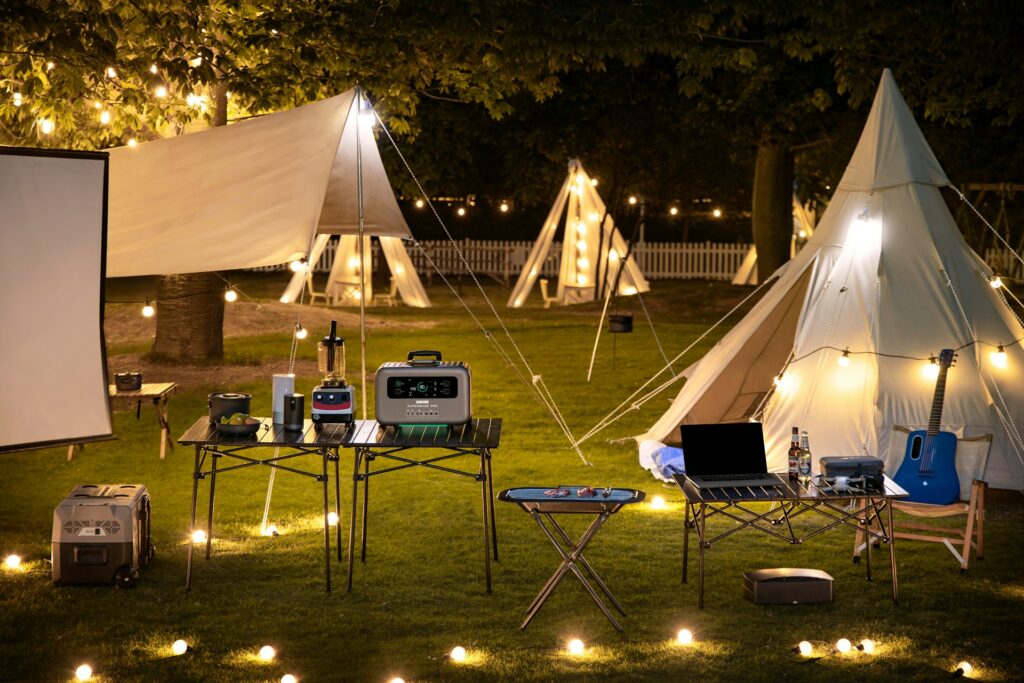
Solar-Powered Security Cameras
Speaking of security purposes, another great solar-powered option for your off-grid setup is solar-powered security cameras. These cameras use built-in solar panels to charge their batteries, enabling continuous surveillance without direct access to the electrical grid.
Features can include high-resolution video, motion detection, night vision, and the ability to withstand adverse weather conditions. Many models also offer remote monitoring capabilities through smartphone apps, allowing property owners to view live footage and receive alerts from anywhere.
The appeal of solar-powered security cameras lies in their sustainability and low maintenance. By relying on renewable energy, they offer an eco-friendly alternative to traditional surveillance systems, reducing both energy consumption and ongoing costs. This makes them an excellent option for off-grid living, providing dependable security without compromising on environmental values or convenience. Whether for home security, monitoring commercial properties, or keeping an eye on remote locations, solar-powered cameras are an attractive addition to your off-grid setup.
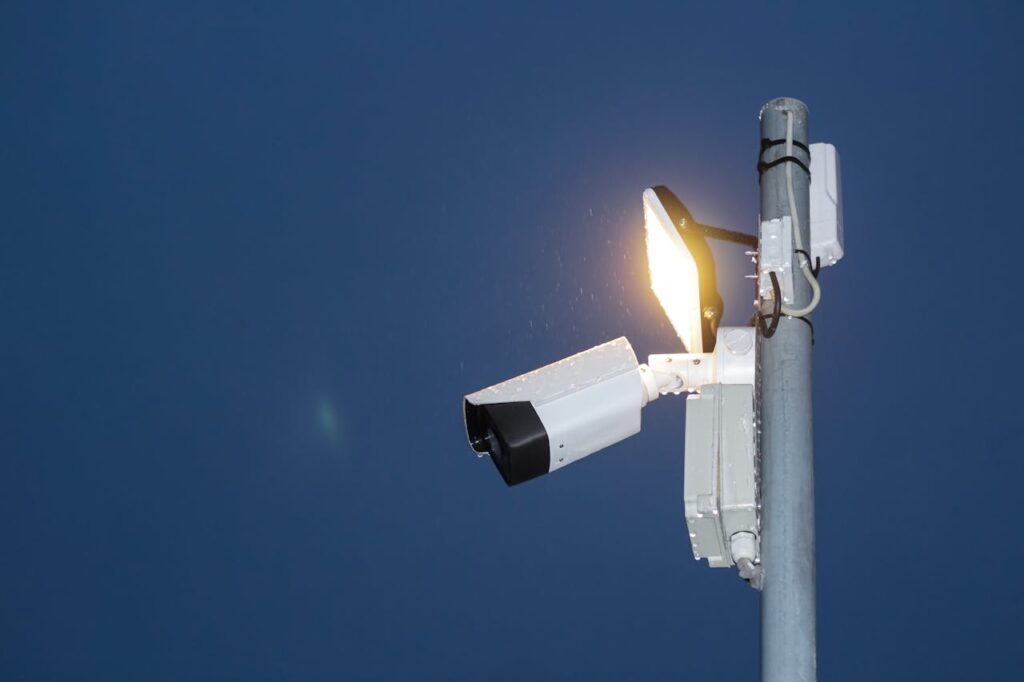
Solar-Powered Water Fountain Pumps
Solar-powered water fountain pumps use sunlight to operate, making them ideal for off-grid gardens and ponds. These pumps are straightforward to set up and don’t need electrical wiring, drawing energy directly from the sun to circulate water. They are a simple and affordable way of adding a bit of life to your garden, without worrying about additional energy costs or environmental impact.
Unlike other solar devices, the lack of an internal battery for energy storage isn’t such a big issue for solar water fountains. Since they’re more of a ‘nice-to-have’ decorative device than essential, it’s not too much of a problem if they only work during sunny conditions. This means there’s a wide range of budget-friendly solar fountain pumps available, allowing for easy integration into any off-grid setup to enhance your outdoor aesthetics.

Solar-Powered Electric Gates
Solar-powered gate openers are another interesting and practical solution for off-grid properties, providing reliable gate operation without the need for electrical grid connections. They use solar energy to power the gate-opening mechanism, and are particularly useful for remote entrances. Unlike some solar gadgets, having a battery storage component in a solar gate opener is crucial, as it ensures gates can be opened or closed at any time – including during the night or on overcast days – maintaining access and security around the clock.
Solar-Powered Watches
While less of an addition to an off-grid living setup and more of a personal gadget, solar-powered watches are another way of incorporating sustainable energy into your day-to-day life. Solar-powered watches harness sunlight through integrated solar panels, eliminating the need for battery changes and supporting sustainable living. These watches are ideal for eco-conscious individuals, offering a greener alternative to traditional timepieces.
While they tend to be pricier initially, and options may be limited, their low maintenance and environmental benefits make them a practical choice for those looking to be more eco-friendly. Solar watches work well in most lighting conditions (only seeing impacted performance when kept in dark environments for several months), ensuring reliable timekeeping powered by renewable energy.

Solar-Powered Refrigerators
Solar-powered refrigerators, including freezers and coolers, are a convenient and eco-friendly way to keep food and drinks cold during camping trips, road trips, and other outdoor adventures. These portable devices harness solar energy to operate, making them perfect for off-grid use or in situations without access to conventional power sources.
Solar-powered refrigerators are typically purchased with compatible solar panel. They can maintain a cool temperature for extended periods, ensuring your perishables stay fresh whilst you’re out in the sun. While their initial cost may be higher than traditional coolers, the benefit of not needing a constant supply of power or ice, as well as the savings on generator fuel, make them an easy and cost-effective solution over time. They are ideal for outdoor enthusiasts and those committed to sustainable living.
Conclusion
In this article, we’ve explored the different types of solar-powered devices that can be incorporated into your off-grid living setup. From solar panels that power your home’s energy supply to portable solutions like solar generators and power stations, lights, ovens, and refrigerators, there are many different ways of integrating solar energy into your daily life.
While solar power offers a vast array of benefits, it’s also important to consider other renewable energy sources to diversify and strengthen your off-grid setup. Among the options discussed, solar generators and power stations stand out due to their versatility in powering a wide range of devices and their ability to be expanded with additional batteries for increased capacity. There are many great solar brands which offer a broad range of solar generators for off-grid use. These solutions not only cater to a broad spectrum of needs but also reinforce the viability of living off the grid while maintaining comfort and convenience.
For more information on the best brands and products to choose, you might find these articles helpful: Lion Energy Battery: How To Make the Best Purchase Choice, Why ACOPower? Discover The Best in Solar Solutions, and Bluetti vs EcoFlow: How to Choose the Ultimate Solar-Powered Brand.
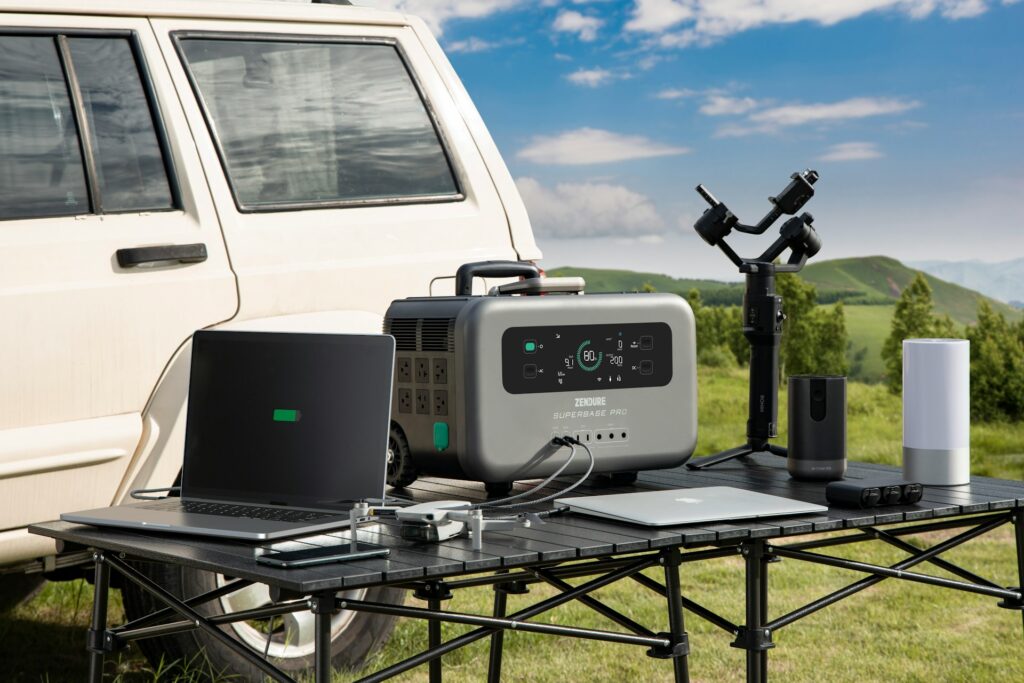
Solar Trek is all about breaking down information about solar-powered brands and products into a helpful, easily digestible format. All of our content is totally objective, aimed at helping you to make the best purchasing decisions for your solar needs. If you click our links and make a purchase, we may earn some commission at absolutely no extra cost to you, but this does not interfere with our goals of providing 100% helpful, informative, and objective information.


